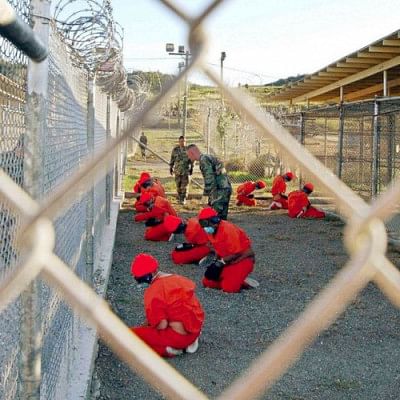Torture poisons societies from within

"You can chain me, you can torture me, you can even destroy this body, but you will never imprison my mind."
These were the words of Mahatma Gandhi who was jailed 13 times for his non-violent and peaceful resistance against British colonial rule in India. Torture was also a common practice at the Robben Island prison camp where the former President of South Africa Nelson Mandela spent 18 years of his life. One would assume that this shameful practice would belong to the past. Nonetheless, it is still being practiced in more than 100 countries and is being re-legitimised in others.
The '2017 International Day in Support of Victims of Torture' on June 26 commemorates the numerous victims of torture globally. It also marks the entry into force of the "1984 Convention against Torture and Other Cruel, Inhuman or Degrading Treatment or Punishment" that has been ratified by 162 Member States of the United Nations (UN). This Convention prohibits the use of torture by calling upon States to implement"effective legislative, administrative, judicial or other measures to prevent acts of torture in any territory under its jurisdiction."
Torture does not take place in public. It occurs primarily in detention and in prison centres where detainees and prisoners experience cruelty and degrading treatment. Torture and prison abuse are well documented. The scandal that emerged following the Abu Ghraib torture and prisoner abuse in March 2003 reminded the world that torture is still a common practice. At the Guantanamo Bay prison camp in Cuba, it was revealed that detainees were being tortured for lengthy periods of time. Instances of physical and mental forms of torture were also denounced by the UN.
Another form of torture that has been condemned by civil rights groups and the UN is the treatment of migrants and refugees in asylum centres. Certain countries have been accused of implementing detention policies that violate the stipulations set forth in the Convention against Torture. The UN Special Rapporteur Juan Mendes issued a report in 2015 in which he cautioned against the inhuman and degrading practices inflicted on migrants and refugees at detention centres. This clearly contradicts Article 5 of the 1948 Universal Declaration of Human Rights stipulating: "No one shall be subjected to torture or to cruel, inhuman or degrading treatment or punishment."It remains a paradox that refugees and migrants are subjugated to various forms of torture in certain host countries as they flee from similar types of inhuman practices in their countries of origin.
The horrific use of torture in the Middle East and in Northern Africa by violent extremist groups is another cause of concern. The images of civilians being tortured and mutilated by terrorists constitute the worst forms of human cruelty. Reports of women, children and men being subjugated to different forms of inhuman and degrading treatment including rape, summary executions and beheadings of captives are reminiscent of the Dark Ages.
In order to eliminate torture, it is important to ensure the universal ratification of the Convention of Torture. Member States of the UN should also ratify the Optional Protocol to the Convention against Torture allowing for "regular visits to places of detention" to unveil the use of torture at prisons and detention centres. It is important that unannounced inspections are made by monitoring bodies on a regular basis to unveil the use of torture at different locations and to serve as a deterrent. Effective laws and policies are key to ensuring the creation of preventative mechanisms enabling governments to comply with international norms and procedures.
It is likewise important that politicians and world leaders refrain from issuing statements justifying the use of torture under special circumstances. Statements justifying the use of torture for interrogation purposes do not serve the cause of human rights, justice and rule of law. It does not belong in our modern societies and cannot be justified in any form whatsoever. The use of torture poisons our mindsets and degrades our societies and pollutes democracy. Governments should not turn a blind eye to torture. It needs to be condemned at the highest level by world leaders. By justifying the use of torture, a culture of impunity will emerge. Victims of torture deserve justice and reparations for crimes inflicted upon them. Torture knows no borders. It is an evil that needs to be eliminated in all of its forms as it constitutes the worst form of human cruelty.
The writer is Chairman of the Geneva Centre for Human Rights Advancement and Global Dialogue.

 For all latest news, follow The Daily Star's Google News channel.
For all latest news, follow The Daily Star's Google News channel. 








Comments